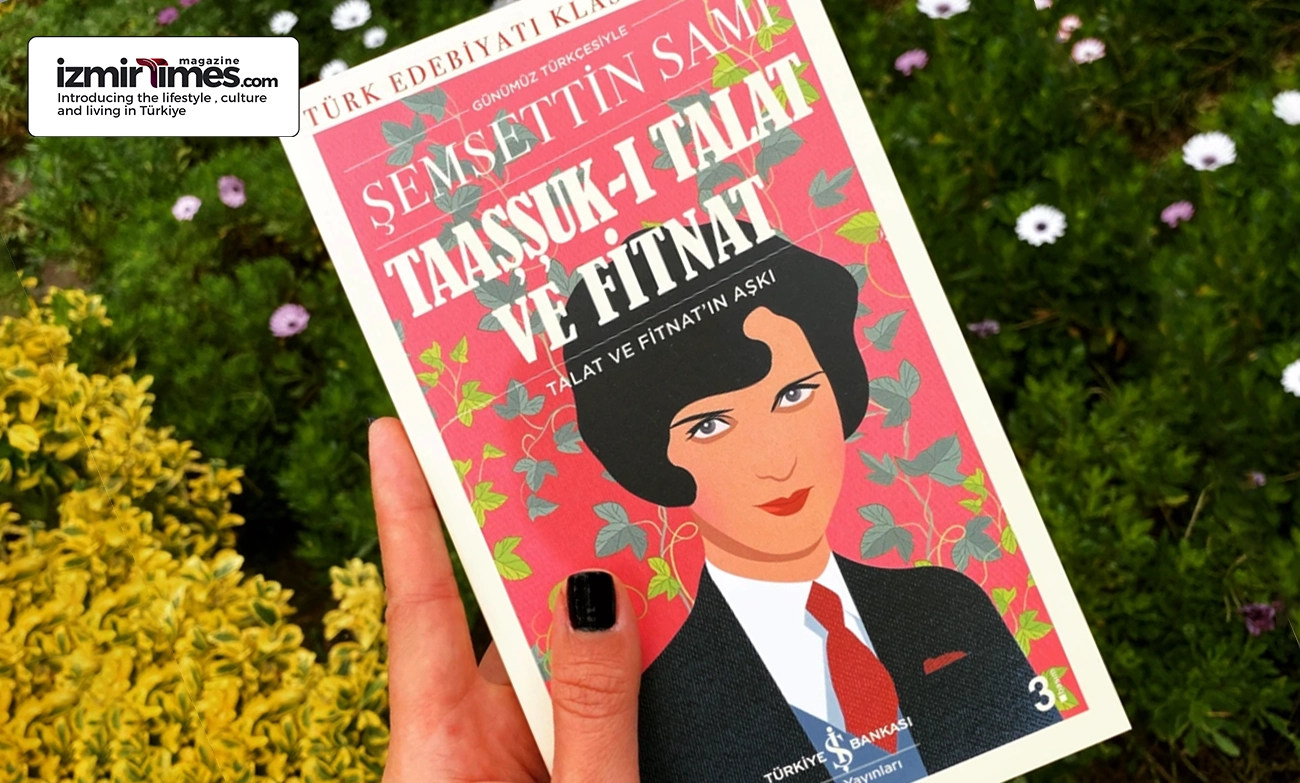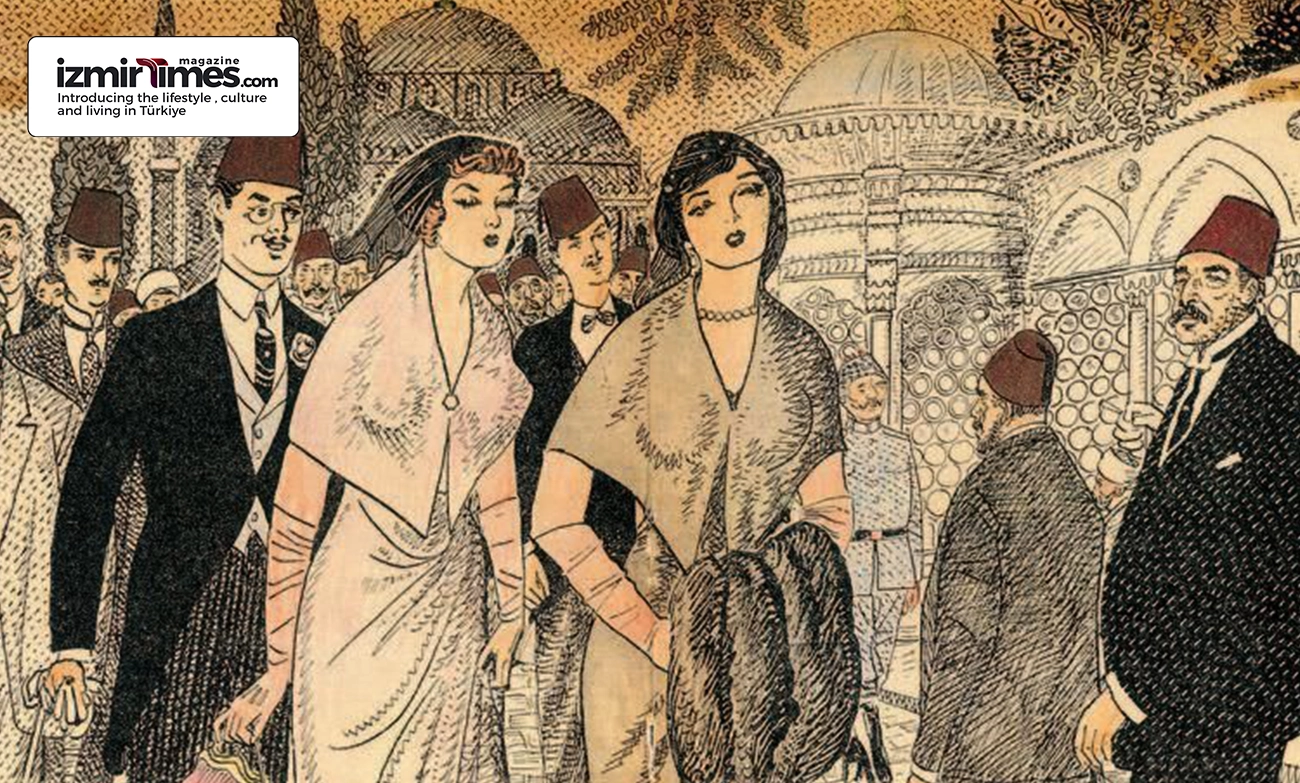The history of the novel in Turkish literature
Tracing the Evolution: The Story Behind Turkish Literature's Novel Journey

Novel books with simple translations entered Turkish literature from France in 1862
The first novel was translated into Turkish in 1862 under the name Fenlon, translated by Yusuf Kamil Pasha. Then, after that came Victor Hugo… 10 years later, the first Turkish novel, Eshq Talaat wa Fitnat, by the Turkish author Shamsuddin Sami, was about a young girl who her parents forced to marry someone she didn’t want and eventually committed suicide.

After Shamsuddin Sami, Ahmed Medhat, Rajaizadeh, and Mahmoud Akram came. After them, works appeared in Turkish literature that became the light of the way for the emergence of today’s Turkish literature. Some writers brought the people to the fore; some wrote their history and political attitudes, and some wrote about sexuality and the culture of the people. All of them were unique; they all told us of “real life” that seemed to be written on a table. They made readers question the meaning of life. If we find a list and immerse ourselves in the novel, we will learn lessons from those stories about how people, countries, psychology, and politics have changed. We want to look at this significant development and examine the entry of the novel into Turkish literature along with the introduction of authors of the Ottoman period and the period of adjustment, academicians, literature teachers, and publishers, compiled by Hurit Publishing House of Turkey.
The first novel published in Ottoman Turkish letters
Taaşşuk – Talât ve Fitnat is a novel by Shams al-Din Sami, a writer of Albanian descent living in Turkey who has produced works in various genres. The novel Tashgh Talaat wa Fatnat was published in the Hadika newspaper from November 1872 to the summer of 1873, but it was first published in book form in 1875. This work, which narrates a tragic love story, is one of the first Turkish novels written in the style of Western literature and the first novel published in Ottoman Turkish letters.

The Story of Akabi is the first Turkish novel by Vartan Pasha, published in Armenian characters in 1851.
The novels of the period of adjustment are expected to deal with topics such as expressing the position of women in society, examining marital relations of that period, and dealing with the problems of inappropriate marriages and concubines. These themes are prominent in the book Tashegh Talaat wa Fatnat. The most prominent themes of the novel Tashegh Talaat wa Fatnat are the education and marriage of women without seeing and its tragic consequences, which are discussed many times in the following. The book also emphasizes the importance of love and affection. The author reflects on the painful consequences of blind marriage with a simple technique and emotional personality analysis. In realistic romanticism, he tries to remember the spoken language in the novel’s narrative, and dialogues play an essential role in the story.
Who is Shamsuddin Sami?
Shams al-Din Sami Frashëri (Albanian: Sami Frashëri) (June 1, 1850 – June 18, 1904) was an Albanian author, lexicographer, philosopher, and playwright, and a prominent figure in the Albanian revival movement. Shams al-Din Sami wrote and published the first novel in Ottoman Turkish called Eshgh Talat wa Fatnat, which gained a central place in Ottoman literature and contributed significantly to the reform of the Turkish language.
What was the adjustment period?
The modernism movement in society and literature in the Ottoman 19th century
The setting spans the 37 years of the Ottoman Empire between 1839 and 1876. The sultans of the adjustment period are Sultan Abdul Majid and Sultan Abdul Aziz. The most significant developments of this period are the regulation decree and the reform decree. In this period, even though they criticized the literature of the court, they could not get rid of the influence of this literature. Concepts such as homeland, nation, rights, justice, and freedom were used for the first time.
The first works in the Western sense began in this period. They considered literature a tool to increase society’s awareness and believed that literature in simple language helps increase society’s understanding, but this thinking was unsuccessful. The adjustment period was considered an excellent development for novel writing, modern story writing, theater, journalism, criticism, and memoir writing, and the artists of this period were also known as statesmen. In this period, classicism was influenced by romance.

In the second period of settings, realism, and naturalism emerged as dominant currents, and Diwani literature and poetic forms used in the first period were abandoned. The topic of poetry expanded, and artists defended the idea that everything beautiful can be the subject of poetry. Novel and story techniques were developed, and compared to the first period, more qualified literary products began to be presented.
Authors of the first period of Ottoman settings:
- Abrahamology or Shinasi
- Namik Kamal (Namiq Kamal)
- Zia Pasha
- Ahmed Medhat
- Shamsuddin Sami
İbrahim Şinasi
İbrahim Shinasi (Ottoman: İbrahim Şinasi) (August 5, 1826, Istanbul – September 13, 1871, Istanbul) was a Turkish journalist, publisher, poet, and playwright. He is one of the well-known authors of the first period of the Ottoman era. He was also a translator and provided many innovations to Turkish literature. He is the artist who wrote the first article called Ahwal Maqadse, which was immortalized in history. Ibrahimology also published the first private newspaper.
Archaeology is one of the first and most critical Western-oriented writers whose activity began with announcing Turkish settings in Turkish society. Archaeology, who introduced Turkish society to Western-style poetry and provided the first example of Western literary genres such as theater and essays, is a significant name that influenced the literature and intellectuals of his time with his innovative ideas and works.
Namık Kemal
Namik Kemal (December 21, 1840; Takirdagh – December 2, 1888; Chios, Greece) was a writer, journalist, statesman, and poet associated with the Young Ottoman movement, which inspired Turkish nationalism. He was a reformist poet who used the words homeland, nation, and freedom for the first time in his literature.
His first historical novel is Cezmi, and his first literary novel is İntibah. He also authorizes the theaters Mihan or Silistra, Poor Child, Glenyhal, and Black Trouble.
He is a regulatory intellectual who adheres to patriotism, freedom, and national concepts. He is known as the one who brought these concepts into Turkish intellectual life and literature.
Ziya Pasha
Ziya Pasha (Ottoman: Ziya Pasha, English: Ziya Pasha; 1829-1880) was an author, translator, writer, and politician of the Ottoman period. Zia Pasha wrote the book Kharabat, considered the first draft of the history of Turkish literature.
Zia Pasha was born in Istanbul with the birth name Abdulhamid Ziauddin. He was a politician, intellectual, journalist, and poet during the adjustment period. He was one of the most influential statesmen of the 19th century in the Ottoman Empire and one of the authors who wrote the most in the settings literature. He is one of the Ottoman intellectuals who proposed the concept of “Western life” for the first time, along with Abrahamology and Namik Kamal.

Ahmet Mithat Efendi
Ahmed Medhat was an Ottoman journalist, writer, translator, and publisher during the Ottoman period. Ahmed Medhat Effendi was the first viral writer of Turkish literature who adopted the novel tradition. He is referred to as the most prolific writer of that era, sometimes given the typewriter title. He has nearly 200 works, thirty-six of which are novels. Some of Ahmed Medhat’s works include: Hasan Molla, Hossein Fallah, Flatun Bey, and Rakim Effendi, an angel on earth, he is only seventeen years old.
In 1870, Ahmad Medhat published a newspaper called Asr (Çağ), which was closed in the first issue, and after a while, it continued to operate under the name of Badr. It published the newspaper Tercüman-ı Hakkı in 1878, which continued to work until 1921 and has been one of the most enduring and influential publications in the history of the Ottoman press.

Şemsettin Sâmi Fraşiri
Shamsuddin Sami Frashari is one of the greatest linguists of the Ottoman period. He lived between 1850 and 1904 and wrote his first novel, Taaşşuk-u Talat ve Fitnat. He also wrote a Turkish dictionary called Qamoos Turki, Qamoos Al-Alam, and French Qamoos.
Shams al-Din Sami laid the foundations of Turkology in his time with his education. His name is written in Latin letters as Fraschery in some dictionaries published in the Ottoman period.
Authors of the second period of Ottoman settings:
- Rajaeizadeh Mahmoud Akram
- Abdulhaq Hamid Tarhan
- Savior teacher
- Nebizada Nazem
Recaizade Mahmud Ekrem
Turkish poet and writer. Rajaeizadeh is one of the famous poets and writers of the 19th century and Turkish literature in the Ottoman period. Mahmoud Akram Rajaeizadeh was born in 1847 in Istanbul. His father, Mohammad Shaker Rajaei Effendi, was a poet, calligrapher, and historian of his era and a member of the scientific and cultural institutions of the adjustment period.
Rajaeizadeh Mahmoud Akram wrote the first realist novel called Eshq Mashin. The author of Theaters, Afife Angelique, who knows too much, makes many mistakes and is a fool. Mohsen Bey was also appreciated in his novels.

Abdülhak Hamit Tarhan
Abdulhaq Hamid Tarhan is considered one of the most unique poets of Turkish literature in the second period of Ottoman rule. He is regarded as the leading pioneer of the Western movement.
He produced works in the last period of the Ottoman Empire and the first years of the Republic of Turkey and is an active name in the birth of modern literature. Abdulhaq Hamid Tarhan, who knew the literature of settings, Sadid literature, and national and republican literature, became known as the “great poet” in Turkish literature. This title was used for the first time by Suleiman Nazif.
*Suleiman Nazif (born January 29, 1870, Diyarbakir – died January 4, 1927, Istanbul) was a Turkish poet, writer, and bureaucrat who lived during the Ottoman Empire and the Republic period.
Among the works of Abdulhaq Hamid Tarhan, we can mention Makbar, and Mordah, these are similar, to Hajla, Garam, and Elham Watan.
Muallim Naci
Muallim Naci (Turkish: Muallim Naci) was born in 1849 in Istanbul, Ottoman Empire – died on April 12, 1893, Istanbul Ottoman Empire, Turkish writer, poet, teacher, critic, lexicographer, and poet of the second Ottoman period who wrote Western poetry. His language is heavy but successful.
Among his works are The Naji dictionary, the Ottoman dictionary, which is a cultural Persian to Turkish (Istanbul, 1904); Reading teaching textbook (Istanbul, 1893); The poetry collections of Atshapare (Istanbul, 1884), Sharare (Istanbul, 1885), Forozan (Istanbul, 1886) and Sanblah (Istanbul, 1890), Yadgar Naji (Istanbul, 1897).

Nabizade Nazim
In Osmani: Nabezade Nazim (born 1862 (?) – died on August 6, 1893) is a writer of Ottoman Turks during the Ottoman period.
Nabizadeh Nazim, who wrote works in the genres of poetry, memoirs, stories, novels, and scientific subjects, is the author of Karabibek, which is considered the first realistic rural Turkish novel, and Zahra, the first naturalistic, dissertation, and psychological novel in Turkish go.
His novel Karabibek, published in 1890, can be called a long story and is the first rural novel in Turkish literature. It is a realist work that he calls “authentic.” The novel “Zahra” (1896) attempts to be a psychological novel. In this novel, Nabizade Nazim has portrayed the traditional cafes of Shehzade Bashi Theater and women’s fights with a realistic view. This work is not considered a psychological novel but the first novel in Turkish literature in which psychological elements are used.
Top ten works from books after the adjustment period
- ince memed
- Unable to hold
- Clock setting institute
- A Quiet Mind
- Mam Mihan Hotel
- Black book
- On fertile soils
- The Wandering Man
- Forbidden love
- My name is red




